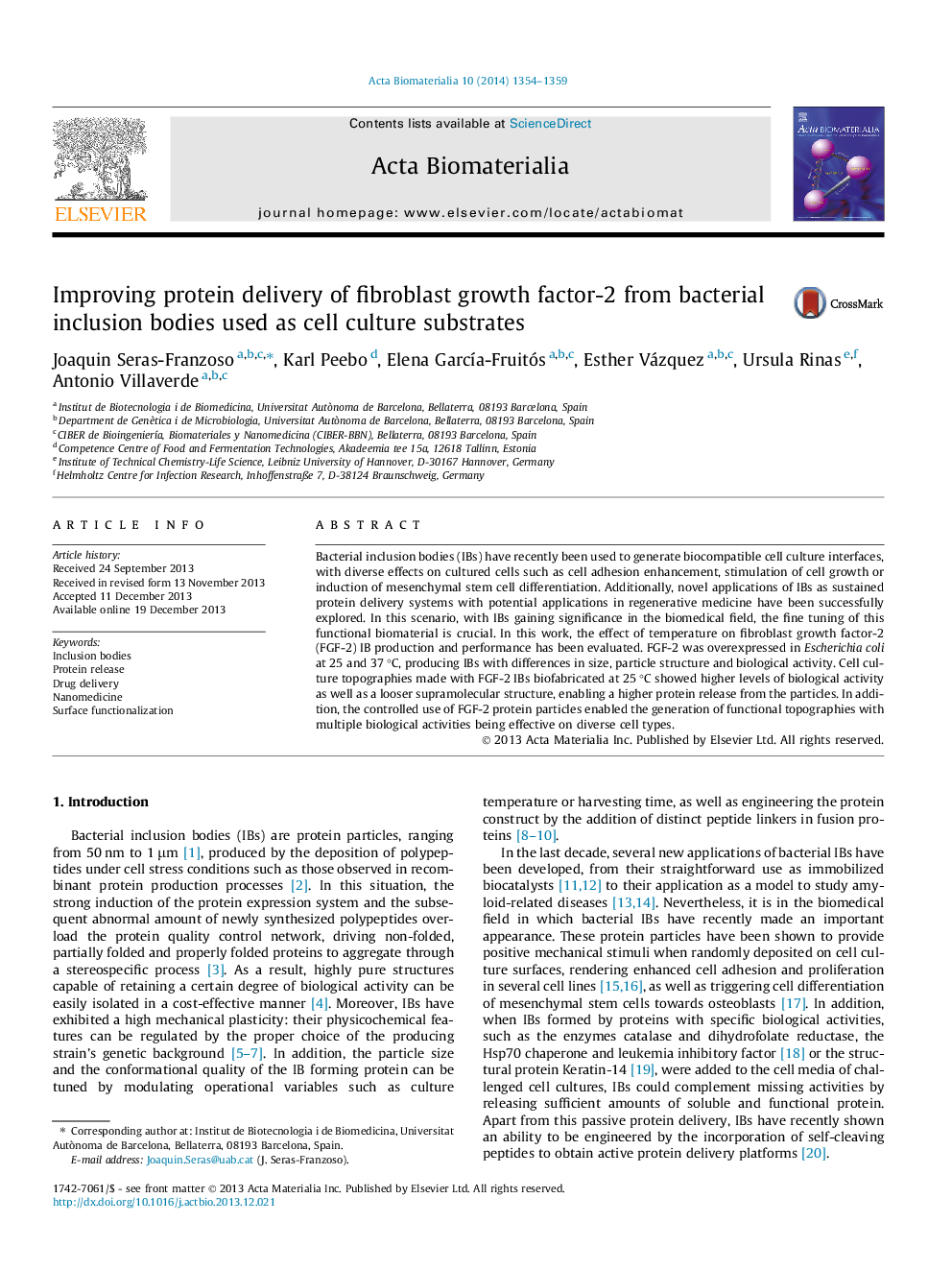| Article ID | Journal | Published Year | Pages | File Type |
|---|---|---|---|---|
| 10159288 | Acta Biomaterialia | 2014 | 6 Pages |
Abstract
Bacterial inclusion bodies (IBs) have recently been used to generate biocompatible cell culture interfaces, with diverse effects on cultured cells such as cell adhesion enhancement, stimulation of cell growth or induction of mesenchymal stem cell differentiation. Additionally, novel applications of IBs as sustained protein delivery systems with potential applications in regenerative medicine have been successfully explored. In this scenario, with IBs gaining significance in the biomedical field, the fine tuning of this functional biomaterial is crucial. In this work, the effect of temperature on fibroblast growth factor-2 (FGF-2) IB production and performance has been evaluated. FGF-2 was overexpressed in Escherichia coli at 25 and 37 °C, producing IBs with differences in size, particle structure and biological activity. Cell culture topographies made with FGF-2 IBs biofabricated at 25 °C showed higher levels of biological activity as well as a looser supramolecular structure, enabling a higher protein release from the particles. In addition, the controlled use of FGF-2 protein particles enabled the generation of functional topographies with multiple biological activities being effective on diverse cell types.
Related Topics
Physical Sciences and Engineering
Chemical Engineering
Bioengineering
Authors
Joaquin Seras-Franzoso, Karl Peebo, Elena GarcÃa-Fruitós, Esther Vázquez, Ursula Rinas, Antonio Villaverde,
